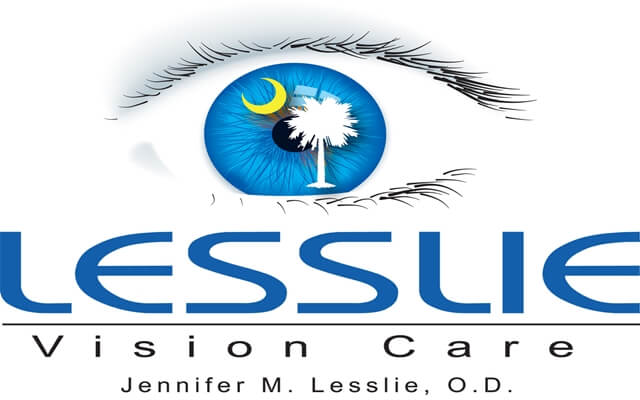 We want to make sure that you receive all of the information that you need to make educated decisions about your eye health. Our eye doctors are always available to answer your questions. Please feel free to send us your eye care questions to: crystal@lesslievisioncare.com.
We want to make sure that you receive all of the information that you need to make educated decisions about your eye health. Our eye doctors are always available to answer your questions. Please feel free to send us your eye care questions to: crystal@lesslievisioncare.com.
------------------------------------------------------------------
Q: How are Progressive Lenses different from Bifocals?
Dr. Lesslie: Many individuals who require the utilization of a bifocal lean toward progressive lenses since they offer an invisible blended appearance between the distance and near vision portions of the lens. The focal points contain no obvious line and increase in strength while you look lower down the lens.
Q: Will I see better with progressive lenses?
Dr. Lesslie: Premium progressive lenses provide a much more extensive, distortion-free reading zone. Vision is most clearer than bi and trifocals, as well as other progressive lenses. These progressive lenses are completely custom ordered, sized, and designed specifically to your measurements, and are 100% digitally surfaced or ground. This offers the client the clearest most natural vision possible to a person with presbyopia!
Q: How are Progressive Lenses different from Bifocals?
Dr. Lesslie: Many individuals who require the utilization of a bifocal lean toward progressive lenses since they offer an invisible blended appearance between the distance and near vision portions of the lens. The focal points contain no obvious line and increase in strength while you look lower down the lens.
Q: Are generic contact lens solutions fine for me to use with my contacts?
Dr. Lesslie: NO! Most generic solutions are not the same as their name brand counterparts. We always recommend to our patients not to skimp on the contact lens solutions because the generic solutions just don't measure up. In many cases the preservatives that are in the generic solutions are not the same as those in the name brands and will lead to lens discomfort or irritation. Many of the generic solutions actually cause the lenses to feel dry and uncomfortable.
Q: When can my child start wearing contact lenses?
Dr. Lesslie: Children can start wearing contact lenses at any age. Motivation and maturity are the two main concerns that we as doctors have when fitting a child in contact lenses. If the child is not motivated to wear contact lenses to correct their vision, then most likely they will not "buy in" to the idea of putting them in and taking them out on a daily basis. Maturity is a big factor in the care of their contact lenses. The child needs to have a reasonable understanding of how to properly care for their eyes and contact lenses. Many of these concerns are not a problem with the ease of single use lenses that are disposed of after wearing once. If the child and parent are motivated then contact lens wear can be a wonderful, confidence boosting experience for children at any age!
Q: When should I get my child's eyes examined?
Dr. Lesslie: The American Optometric Association recommends that children have their eyes examined at 6 months of age by an optometrist. Most parents think that the pediatrician is checking their infants vision when they bring them to the office for a well-baby visit; however, this is just a very gross screening for very obvious problems. Unfortunately, there are many eye problems that go undetected for long periods of time until it begins to cause problems for the child. 80% of what a child learns is through visual cues. InfantSee is a program that the AOA launched that allows for free eye exams for infants ages 6-12 months to have early detection of eye problems that could otherwise cause impaired learning or permanent decreased visual function. Drs. Lesslie is InfantSee provider and would love to see your child today!
Q: What is age related macular degeneration?
Dr. Lesslie: Macular degeneration is a disease that affects the macula of the eye. The macula is the part of the retina that gives people the ability to appreciate details and see colors. It is responsible for the "straight ahead" central vision that allows people to navigate all visual daily tasks like reading, driving, and watching tv. When a person begins to develop macular degeneration these things that are normally taken for granted become harder to do. Progression of the disease can lead to images becoming dim or black holes at the center of vision. Risk factors for developing ARMD include age, race, family history and smoking(smoking doubles the risk).
Q. I have always heard that carrots are good for eye health; is this true and should I make sure my kids are eating carrots?
Dr. Lesslie: The short answers to the above questions are YES and YES. However, we need to dig a little deeper and realize that while carrots are good for overall eye and retinal health, they are not the only food we should be making sure are kids are snacking on! We have known for quite some time that carrots are packed full of beta-carotene which serves a vital role in eye health. Beta-carotene can also be found in mangoes, papayas, sweet potatoes, kale, spinach, and collard greens (just to name a few.) More recent research also states that a diet high in lutein, zeaxanthin, Vitamin C, Vitamin E, and Zinc is essential to retinal health. For our adult patients who fear they may not be getting adequate amounts of the nutrients listed above we will recommend a specific eye vitamin to supplement their diet. In children, we like to focus on a well-balanced diet of foods to provide the same vitamins and nutrients. So yes, please continue to give your children carrots—but don’t stop there. Add in some spinach, kale, collard greens, almonds and oranges just to name a few! Check out our eye healthy recipes to give you more ideas!
What benefit does taking fish oil supplements have on my eyes?
Dr. Lesslie: Fish oil, also known as omega 3 fatty acids, have fabulous anti-inflammatory properties. High quality triglyceride forms of fish oil are absorbed by the body and can help reduce inflammation throughout the whole body, but more specifically the eyes. Dry eyes are the most common symptom of inflammation that affects the front part of the eyes causing blurred vision, watering, redness, itching, and the feeling of "grit" or trash in the eye. PRN Nutraceuticals is the brand that we recommend and sell in our office. The daily recommended dose of omega 3's is at least 2000 mg and should be taken with a meal for proper absorption.
